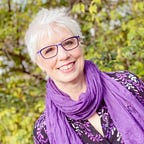My journey towards anti-racism
In my previous role as a Program Officer at the National Institute of Diabetes and Digestive and Kidney Diseases (NIDDK) I supported consortium of more than 50 investigators funded to develop the science to that would lead to prevention of bladder problems in women(https://plusconsortium.umn.edu/). The investigators represented disciplines ranging from Community Health to Female Pelvic Medicine and Reconstructive surgeons. The majority of the investigators came from clinicial disciplines (medicine and nursing) without formal education in Community Health and Social Justice. Gradually we were educated about equality, equity, racism and justice.
While I understood that my upbringing was not disadvantaged (middle to lower middle class rural Iowa), prior to many conversations with PLUS investigators, I had not thought of it as privileged. I would have thought that having rich parents, an Ivy League education, and a trust fund as being privileged and remote from anything I knew. I am now clear that being born with white skin is a privilege; having a warm bed to sleep in every night is a privilege; having nutritious food for every meal is a privilege; being expected to go to school every day because that is your job as a child is a privilege; always having employer based health insurance is a privilege.
When I became aware of the Derek Chauvin verdict on Tuesday, I was having a drink with a young man of color (KP) who had been my personal trainer for 3 years. We met 3–5 times per week and had plenty of time to talk about everything and anything. During my many conversations with KP over the years he shared his experience of growing up black in Prince George’s County MD. He was taught how to act WHEN, not IF he had encounters with law enforcement and shared his experiences of being stopped for “driving while black”. While I was aware of these occurrences from media and didn’t doubt they existed it was powerful to listen to first person recounts. He knew how to act and apparently executed the act well enough that he is still alive. As we heard of the verdict we quietly acknowledged our shared relief.
Listening to a cable news program this morning a woman commented that one of the ways white people can get actively involved in this country’s overdue journey to anti-racism is to speak out publicly — not just in private conversations. I will do better in this regard.
Understanding racism is very complex. We must acknowledge that we have all been racists — often unintentionally. Rather than “I am not a racist”, perhaps it should be “I have not been intentionally racist”. The common defense that I can’t be racist because I have a black friend is nonsense. Knowing and being friends with a black person does not mean you are not a racist. In 1974, I “dated” a black man from South Chicago my freshman year of college in rural Iowa. It was random; it was fun; it was not a act of rebellion because my family never knew — it was not destined to be a long-term relationship. He was kind, funny and respectful. He was insistent that the black women on campus did not know of the relationship. I didn’t understand why at the time. I don’t know if our several month relationship was truly a secret on a campus of 3,000 students but I did not experience any verbal confrontations which is what he was worried about. The relationship simply ended after a few months. I wish I had learned more about his world at that time but perhaps he didn’t want to share more. This relationship does not mean I have not engaged in racist acts or had racist thoughts.
I have no idea if any of my ancestors were slave owners but that doesn’t free me from responsibility for systemic racism in this country. From my position of privilege, how can I truly be anti-racist and more importantly help others recognize their own privilege and seek to be anti-racist? 2020 was a year full of examples of inequities in this country — occurring at a time when we had less distractions. For me, 2020 allowed me to fully understand the impact of privilege on my life’s journey. While acknowledging privilege is not the same as being anti-racist, perhaps it is a first step that is easier for some.
We need to own up to racism and commit to doing better. Easy first steps are to stop denying denying systemic racism exists and acknowledge that each of us has been unintentionally racist — start with owning it. Energy invested in denial does not move us forward.
